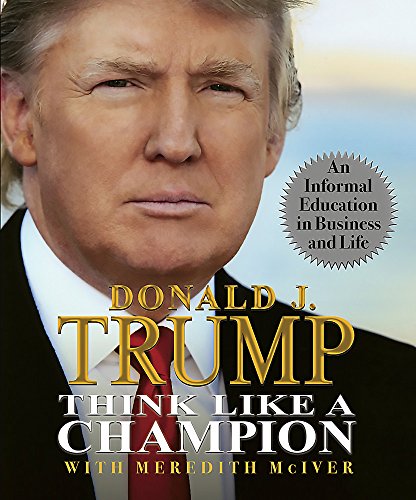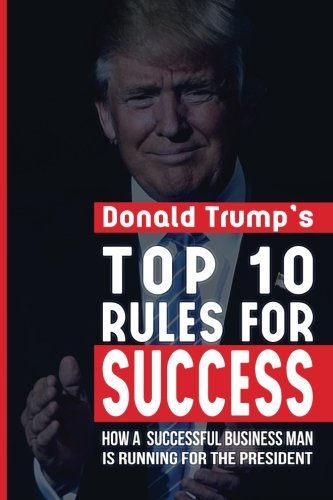Editor’s note: The following selection comes from The Technique of Building Personal Leadership (1944) by Donald A. Laird. It has been condensed from the original chapter.
A group of ambitious management executives attended a conference in the Societies’ Engineering Building in New York City. Almost all the men were college graduates. They were well dressed, well fed, polished. Each stated his opinions carefully and fluently. The meeting simply reeked of logic. But it was getting nowhere. It needed some magnetism to pull it together.
When it seemed that the conference might break up with nothing accomplished, a shrimp of a man sprang to his feet. He wore poorly fitting clothes, cut, in the fashion of a bygone day. The other men seemed amused at his appearance — at first. He began to speak, rapidly and in a high-pitched voice. He seemed excited. He had an accent like a Swedish comedian.
Before he had uttered fifty words the dignified men were listening attentively. Their amusement had disappeared. Soon the little old man had the group in the palm of his hand.
Why? Because he was the first to give off sparks!
 The Technique of Build...
Best Price: $16.82
Buy New $24.95
(as of 03:55 UTC - Details)
The Technique of Build...
Best Price: $16.82
Buy New $24.95
(as of 03:55 UTC - Details)
The stuffed shirts had irradiated dignity but no sparks. This dried-up pip-squeak, with his shrill voice and a dialect that could be understood only part of the time, sparkled like the noon sunshine on the flowing blue ripples of a river. He lacked looks, bearing, and good speech, which the others had, but he had a priceless something the others lacked — a magnetic personality.
Current Prices on popular forms of Gold Bullion
The little man was Carl Barth, the famous industrial engineer. He electrified the group by his personal magnetism.
This does not mean that he had more iron or electricity in his system. These sparks come from certain habits of acting, certain ways of doing everyday things.
Here are the 5 habits that [will make you] become magnetic.
1. Be Active
Fiorello La Guardia, congressman, mayor, and citizen of the world has a magnetic personality. It has helped keep him in important offices for years. His short legs would be a handicap to many men who do not have his magnetism, but they keep La Guardia active, continually on the go.
He wears out his shoes, not his trousers.
Magnetic people are active people. They stand up when they might be sitting down. They move when they might be standing still.
Don’t get the idea that these magnetic people were born with something different that makes them active. This activity is very often deliberately assumed. Billy Sunday, for instance, was a quiet fellow, who impressed the members of his family as a bit on the indolent side. But when he was on the platform, when he wanted to lead people, he made himself become active. He was, in a sense, acting. His jumping, gesturing, shouting were part of a deliberate plan to be active. He was not born that way — he made himself that way to help him lead others.
Teddy Roosevelt is another who made himself active. Alone, he would be relaxed and easygoing. When visitors came, an instant transformation came over him. He moved with vigor, was intensely active, until the visitor left, whereupon he became a relaxed man. The important point is that he assumed an active manner when he was with people, but we should not overlook the fact that he knew how to let down and conserve energy between times. Had he been active every moment, he might have worn himself out prematurely. Be active when with others, relaxed when alone.
Magnetic people show their activity in their handshakes. They use no “dead fish” handshake, no polite finger touching. They shake one’s hand.
 Think Like a Champion:...
Best Price: $2.00
Buy New $3.31
(as of 07:55 UTC - Details)
Think Like a Champion:...
Best Price: $2.00
Buy New $3.31
(as of 07:55 UTC - Details)
They use their hands to gesture when they talk; they do not keep them stuffed in pockets.Teddy Roosevelt used his hands to carve out charts and symbols in the air as he talked. This activity holds interest and helps make ideas clear.
Magnetic folks give emphasis to some of their words. They pause a split second — electrifying attention by that pause — and then push out a word with more emphasis than usual. This is one of the secrets of Winston Churchill’s powerful magnetism over those who hear him. There is no monotone in his talk; he uses emphasis to make it sound like a military polka. Try yourself, on this simple greeting:
“I’m glad to meet you, Mr. Smith.”
Now repeat that greeting, putting the emphasis on the words indicated:
“I’m GLAD to meet you, Mr. SMITH.”
What a difference! The same words but sparks are given off when some emphasis is used.
Further, you do not need to be born with a musical voice to have magnetic speech. Teddy Roosevelt had a squeaky voice, and knew it. Mayor La Guardia certainly has no booming baritone. It is not the voice you were born with that determines the magnetism; it’s how you use that voice. Make it active, along with the other activity of the magnetic personality.
2. Be Brisk
One of the first habits Theodore Roosevelt formed deliberately, in his boyhood, was to be brisk without being brusque. He had an active handshake, but a brief one. He stopped while the other person was expecting one more vigorous pump, one more squeeze of his fingers.
Teddy left them expectant.
His talk was brisk, too. He would talk actively for a few sentences, then stop in silence and let the other person carry on.
 Trump: The Art of the ...
Best Price: $5.63
Buy New $8.22
(as of 10:41 UTC - Details)
Trump: The Art of the ...
Best Price: $5.63
Buy New $8.22
(as of 10:41 UTC - Details)
His glance was brisk. A few seconds of intense concentration into the other’s eyes, then to their hands, jewelry, chin.
He was brisk at social gatherings, the first to excuse himself from friendly groups.
Again, he left them expectant.
The essence of this habit of briskness is to leave people while they are expecting more. Quit while the quitting is good. Don’t wear out the welcome. Clear out before you run down.
When people come to talk with you, this briskness can be used, and without offending. Terminate interviews quickly, gracefully. One executive looks at his watch and then stands up to indicate that it is stopping time.
Another pushes back his desk work and lays down his pipe when someone comes into his office. When the discussion has reached the conclusion, so far as he is concerned, he puts his pipe in his mouth and draws the desk work back to him.
I have been in some private offices where a large, hand-lettered motto behind the executive served to remind the caller to be brief. “Time is precious — don’t waste it” one of this read. Another said, “To waste one’s own time is foolish — to waste others’ is stealing.” The caller could not fail to see and understand these admonitions as he looked at the executive. And I can give testimony that they made me be a bit briefer.
Most interviews can be brief. When they are not, the talk is likely to run around in circles, repeating itself to no point. Since many do not realize the value of briskness, the executive has to protect himself by such tricks in order to terminate the interview tactfully and unobtrusively.
But how do you break away from an interview? Many say they have trouble finding some excuse. No excuse is necessary. Whether you are leaving someone’s office, or a private home:
First. Stand up and say: “I simply have to go now!”Second. Take your things and go!
Don’t let anything stop you between the first and second steps. If you are asked why you must go, well, say that Laird told you to — and don’t stop; keep right on moving.
When you start to leave, don’t stand still; keep moving, and toward the door. Don’t talk, either. Smile and keep going right out the door.
 Donald Trump Top 10 Ru...
Best Price: $2.95
Buy New $6.99
(as of 04:35 UTC - Details)
Donald Trump Top 10 Ru...
Best Price: $2.95
Buy New $6.99
(as of 04:35 UTC - Details)
Neglect to be brief, and one becomes a bore. When Lord Dufferin arrived late at a luncheon, he apologized to the hostess by explaining that he had been detained by the Earl of Kimberley. Then he whispered: “A wonderful man! It is amazing how much he knows. He knows everything — everything! — all the corners of the earth and all the men in it. He knows everything, except — except when to stop!”
In his early days as a toll collector on the canal, John H. Patterson had a small retail coal business as a sideline. He was continually short of money because people were slow to pay for their coal. His business was too small, too insecure, to serve as a basis for bank credit. But he borrowed, solely on his own credit. One morning he went to his banker and said:
“Mr. Phillips, I want to borrow $500 until Friday.”
“Write out a check for $500 to Mr. Patterson,” the banker instructed a clerk. Then he turned to the embryo businessman. “Let me give you a little advice. If you had not asked for it the way you did, if you had asked me how I felt and how business is, you would not have the money. Always be brief. And another thing, be sure to have the money back on Friday.”
Busy businessmen appreciate brevity.





